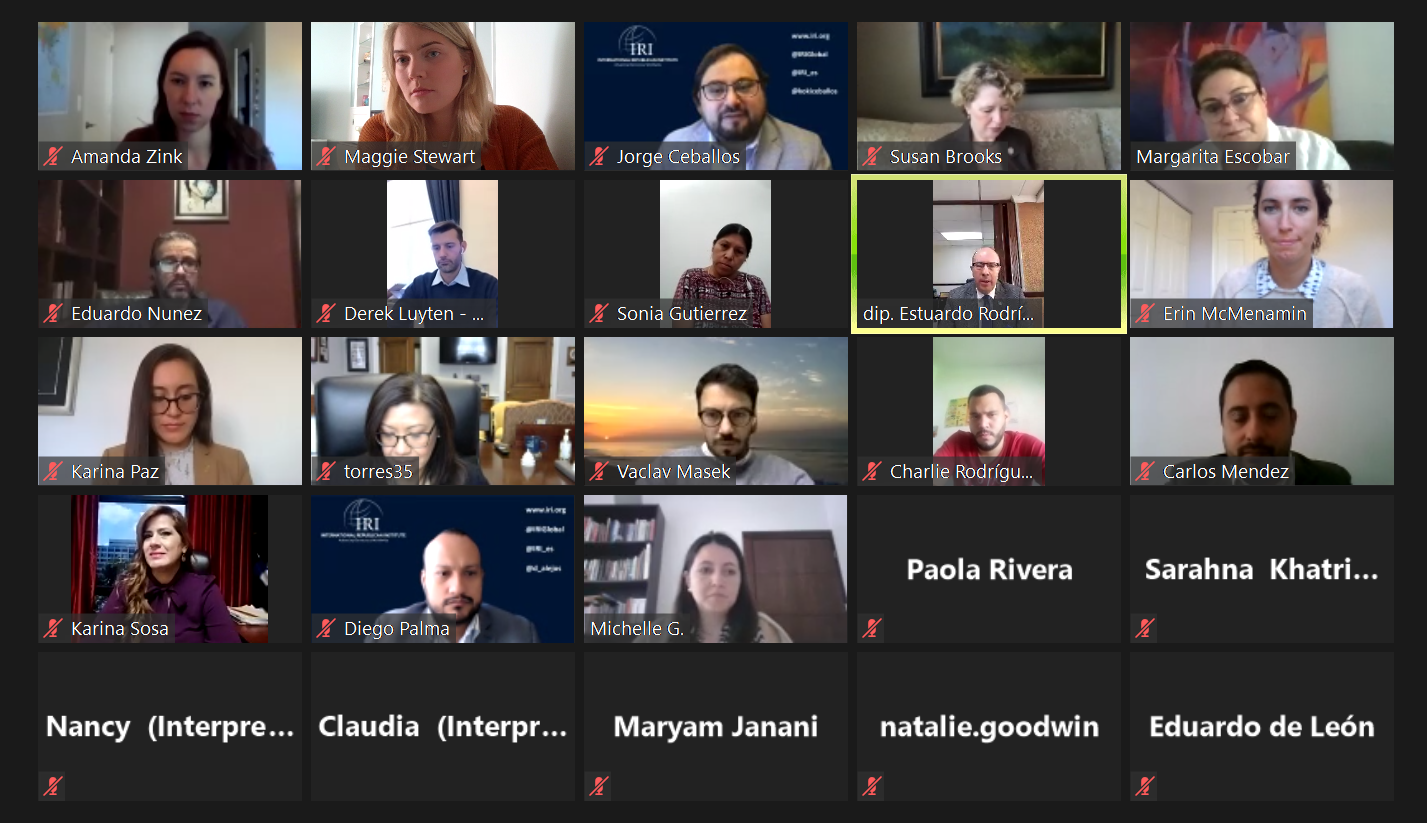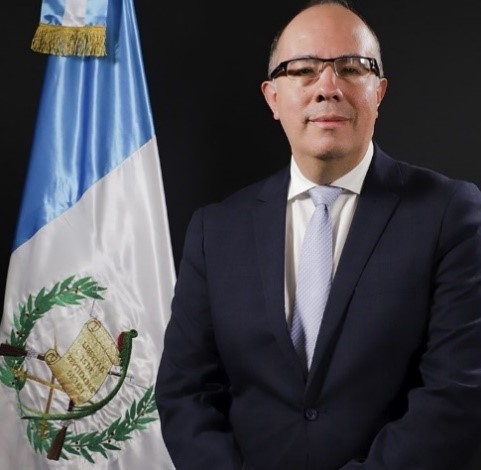HDP Alumni Profile: MP Estuardo Rodríguez Azpuru, Guatemala

The House Democracy Partnership (HDP) is a bipartisan commission of the U.S. House of Representatives that works directly with 22 partner parliaments around the world to support the development of effective, independent, and responsive legislatures. HDP is proudly implemented by the International Republican Institute (IRI) and the National Democratic Institute (NDI).
In these monthly series, we profile HDP alumni to show how they are applying the lessons they’ve learned to their legislative work. Hon. Estuardo Rodríguez, a member of Congress of the Republic of Guatemala, attended virtual programming in September and October 2020, which focused on anti-corruption, oversight, and immigration during the COVID-19 pandemic.

What parliament and chamber are you a member of?
I am a member of the Congress of the Republic of Guatemala and a member of the Party Bloc Humanist Party of Guatemala. Additionally, I serve as the Vice Chair of the Small and Medium Business Congressional Committee.
What HDP program did you participate in?
I participated in two House Democracy Partnership programs discussing economic drivers of migration, particularly during the pandemic, as well as how legislatures can support policies for stronger economies.
What is your favorite thing about your country?
It’s the people. I have been to several places around the world and every time I return to Guatemala, I fall back in love with Guatemalans for their warmth and kindness.
Why did you decide to become a member of parliament?
I felt I received my calling from former President of the Congress, Edmond Mulet. He has always said that those who do not want to be in politics should be in politics, because they will serve as factors of change. Additionally, I am committed to advancing the fight for food safety in Guatemala to fight malnutrition.
How are you applying your experience from the HDP mission to your role as a member of parliament?
I am very committed to the issue of migration and have had the opportunity to generate exchanges with Guatemalan migrant leaders in the United States. I have also coordinated meetings with the General Directorate of Civil Aeronautics (DGAC), the Guatemalan Institute of Migration (IGM), the National Council of Attention to Migrants of Guatemala (Conamigua), and the Guatemalan Air Force, so that our returnees would be treated humanely, since they return with many doubts and fears. I appreciated meeting with the U.S. members of Congress on the issue of migration to share my experiences and ideas.
What advice would you give to new legislators?
You need to be well informed to best represent your citizens.
What accomplishments in parliament are you most proud of?
I am proud of the approval of the Law for the Simplification of Administrative Requirements and Procedures, known as the anti-bureaucracy law. It is an initiative that I presented to the plenary of Congress and was approved as part of the economic reactivation package by the majority of the party blocs. It is a very important law for the country, since it eases bureaucracy and has a positive impact on economic indexes. Now, as a deputy, I have the arduous yet important task of overseeing its compliance.
I also feel proud because I proposed the creation of the law of friendship between Guatemala and Japan, since it is important to strengthen bilateral and diplomatic relations. Japan has been a great friend to Guatemala. I also contributed to the discussion and approval of the signing of the Free Trade Agreement between Guatemala and the European Free Trade Association States (EFTA).
Top